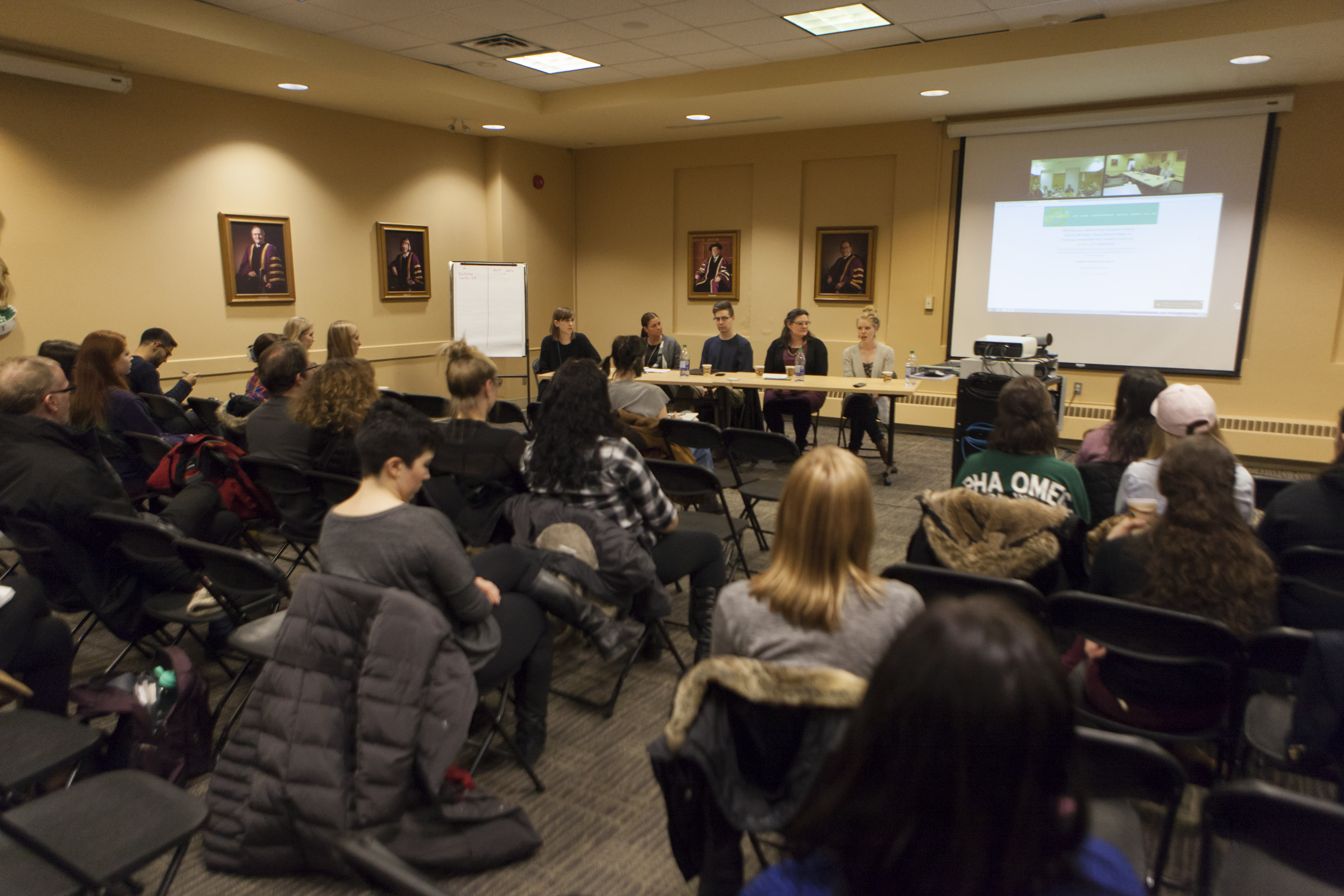Educating students on the importance of consent


Photo by Andreas Patsiaouros
Wilfrid Laurier University’s student and alumni-based advocate group, Advocates for a Student Culture of Consent, held a panel last Tuesday night to kick off their #ConsentIsGolden campaign, aimed at educating university students on the importance of consent in every day events.
“The Blurred Lines of Consent” was open to anyone from the Laurier community to ask questions and take notes from four panelists: Stacey Jacobs, a community sexual health educator from Planned Parenthood Waterloo Region, Karly Rath, co-founder of ASCC, Rebecca Godderis, a gendered violence faculty colleague at Laurier and Stephen Soucie, program coordinator at Male Allies Against Sexual Violence.
“This was intended to be an introductory conversation to consent so while consent looks different in a lot of different situations, we really want just to focus on the basics of what consent actually is and then sort of from that apply it to the realities of different groups of people,” said Soucie.
Throughout the night, audience members and panelists discussed topics ranging from friendship, sexual relationships and body language.
Panelists informed audience members on how to include consent into every day life — from hugging a friend to teaching young children about mixed messages. For audience members, the overall thesis of the panel was how consent is always needed in society, particularly in university culture.
“The panel was excellent,” Godderis said. “I felt that the opportunity to talk about consent in a variety of contexts, including inside and outside of the bedroom, was extremely important.”
Among the topics of discussion was the need to teach young men and boys about sexual assault and consent. At Male Allies Against Sexual Violence, Soucie provides training to young men on issues related to sexual assault and what they can do to help end violence against women.
“We aren’t going to have a safer campus until the men on campus start to stand up and speak out against gender-based violence and until men start to understand how gender structures our lives too, we’re not going to have a safer campus for everyone,” said Soucie.
While the need to teach young men about consent was addressed, Soucie was disheartened to see a lack of males participating or in attendance of the panel.
“If we are looking to change the culture then we will need to have men involved in these conversations.”
Soucie noted the main concern he hears from young men is how statistics of rape and sexual assault are elevated due to false allegations from women making a claim to the police. According to Soucie, the Waterloo Regional Police Service was not aware of any false allegations surrounding the Waterloo Region last year.
“That tells us that this fear that I hear from young men and boys is an irrational fear and not based in reality and so we need to understand why young men and boys are concerned about this and we need to understand what sort of message or discourse is this perpetuating about women and their intentions,” he said.
Overall, Soucie was pleased to see how Laurier students expressed their desire to learn more about sexual consent, gender-based violence and how to make their campus a safer space.
“I think that shows that this is something that Laurier students are interested in and want to hear about and want to learn about.”


